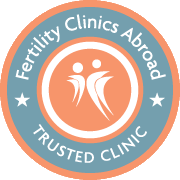Polycystic Ovary Syndrome (PCOS): A Comprehensive Guide
by Athanasios Pantelis, last updated 09 Nov 2023,
2 min read
Polycystic Ovary Syndrome (PCOS) is a widespread health condition affecting 1 out of 10 women of childbearing age. It's characterized by hormonal imbalance, irregular menstrual cycles, and the formation of tiny cysts on one or usually on both ovaries.
Symptoms of PCOS
Typical symptoms include:
- Infrequent or prolonged periods.
- Excessive facial and body hair growth.
- Acne.
- Weight gain.
- Thinning scalp hair.
However, some women with PCOS may not exhibit any visible signs.
Diagnosing PCOS
The diagnosis of PCOS can be challenging due to its wide range of symptoms. Healthcare providers often rely on physical examinations, patient symptoms, blood tests, and pelvic ultrasounds to confirm the presence of this syndrome3.
Treating PCOS
While there's no cure for PCOS, various treatment options can help manage the symptoms and reduce the risk of long-term health problems. These treatments often aim to regulate menstrual cycles, manage hormonal imbalance, and address specific issues like infertility or excess hair growth.
Commonly prescribed medications include Clomiphene and Letrozole, which are first-line treatments for infertility in order to provoke ovulation. Metformin, a diabetes medication, can also be used to treat PCOS, particularly in overweight patients. Hormonal birth control methods, such as oral contraceptives, patches, or vaginal rings, are usually recommended to manage menstrual abnormalities and hirsutism/acne.

Living with PCOS
Living with PCOS can be challenging, but it's crucial to remember that you're not alone. Regular exercise, a healthy diet, and weight loss (if overweight) can significantly improve symptoms and overall quality of life.
IVF and PCOS: A Ray of Hope
In Vitro Fertilization (IVF) can be a promising solution for women with PCOS struggling to conceive. This assisted reproductive technology involves fertilizing an egg outside the body and implanting it into the uterus.
IVF can be particularly beneficial for women with PCOS, as it bypasses many issues related to ovulation and egg quality. However, it's essential to consult a fertility specialist to understand if IVF is the right choice for you.
Preparing for IVF Treatment
If you're considering IVF, preparing both physically and emotionally is crucial. Ensure a healthy lifestyle, including a balanced diet and regular exercise. During this journey, emotional support from counselling or support groups can also be invaluable.
Remember, PCOS doesn't define you. With the right help and support, you can manage your symptoms and live a fulfilling life. Don't hesitate to contact our healthcare professionals with concerns or further information.

Athanasios Pantelis, MD, PhD
Athanasios is an Infertility Specialist at Newlife IVF Greece. He obtained a PhD degree and graduated from the Medical School of the Aristotle University of Thessaloniki (AUTH).









